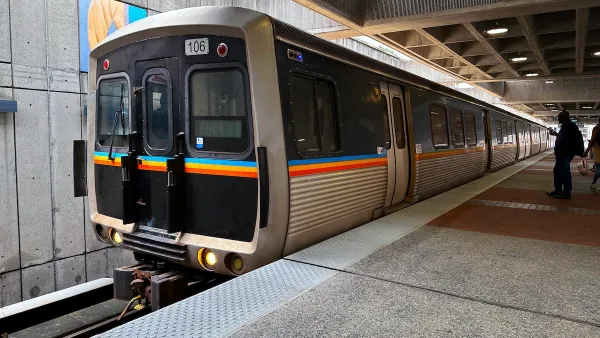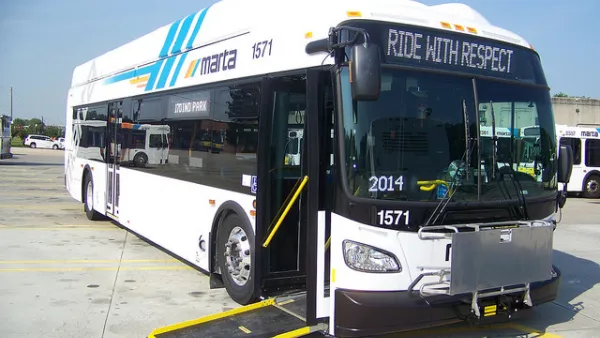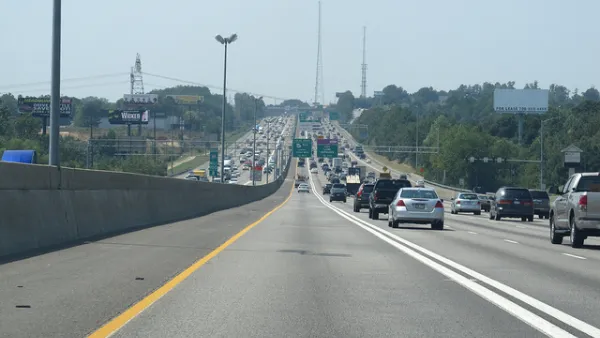The I-85 bridge collapse forced many people living and working in and around Atlanta to make new transportation choices. Now, just months later, the region is back to business as usual.

Michael Kahn reports on the disappointing results of the Atlanta region's experiment with public transit in the wake of the closure of I-85 following a fire and the collapse of a bridge along the highway in April.
Many saw the I-85 temporary demise "as a chance to hook the masses on MARTA," writes Kahn, "and an initial jump of ridership by 25-percent looked promising." As detailed in a post by Joe Cortright, the region adapted well to the reduced transportation capacity, and traffic found a way to balance out.
But those gains in alternative transportation were short-lived, as evidenced by the story of a July 4 snafu that delayed trains and left holiday travelers fuming. Buried in that article by Doug Richards is the news that ridership on MARTA has returned to pre-collapse levels.
Both writers note that frequent service interruptions aren't likely to inspire hordes of new riders to adopt public transit, although the short duration of the I-85 closure also probably didn't force that many riders to make public transit a routine.
FULL STORY: MARTA saw no lasting increase in ridership from the I-85 bridge collapse

Analysis: Cybertruck Fatality Rate Far Exceeds That of Ford Pinto
The Tesla Cybertruck was recalled seven times last year.

National Parks Layoffs Will Cause Communities to Lose Billions
Thousands of essential park workers were laid off this week, just before the busy spring break season.

Retro-silient?: America’s First “Eco-burb,” The Woodlands Turns 50
A master-planned community north of Houston offers lessons on green infrastructure and resilient design, but falls short of its founder’s lofty affordability and walkability goals.

Test News Post 1
This is a summary

Analysis: Cybertruck Fatality Rate Far Exceeds That of Ford Pinto
The Tesla Cybertruck was recalled seven times last year.

Test News Headline 46
Test for the image on the front page.
Urban Design for Planners 1: Software Tools
This six-course series explores essential urban design concepts using open source software and equips planners with the tools they need to participate fully in the urban design process.
Planning for Universal Design
Learn the tools for implementing Universal Design in planning regulations.
EMC Planning Group, Inc.
Planetizen
Planetizen
Mpact (formerly Rail~Volution)
Great Falls Development Authority, Inc.
HUDs Office of Policy Development and Research
NYU Wagner Graduate School of Public Service




























